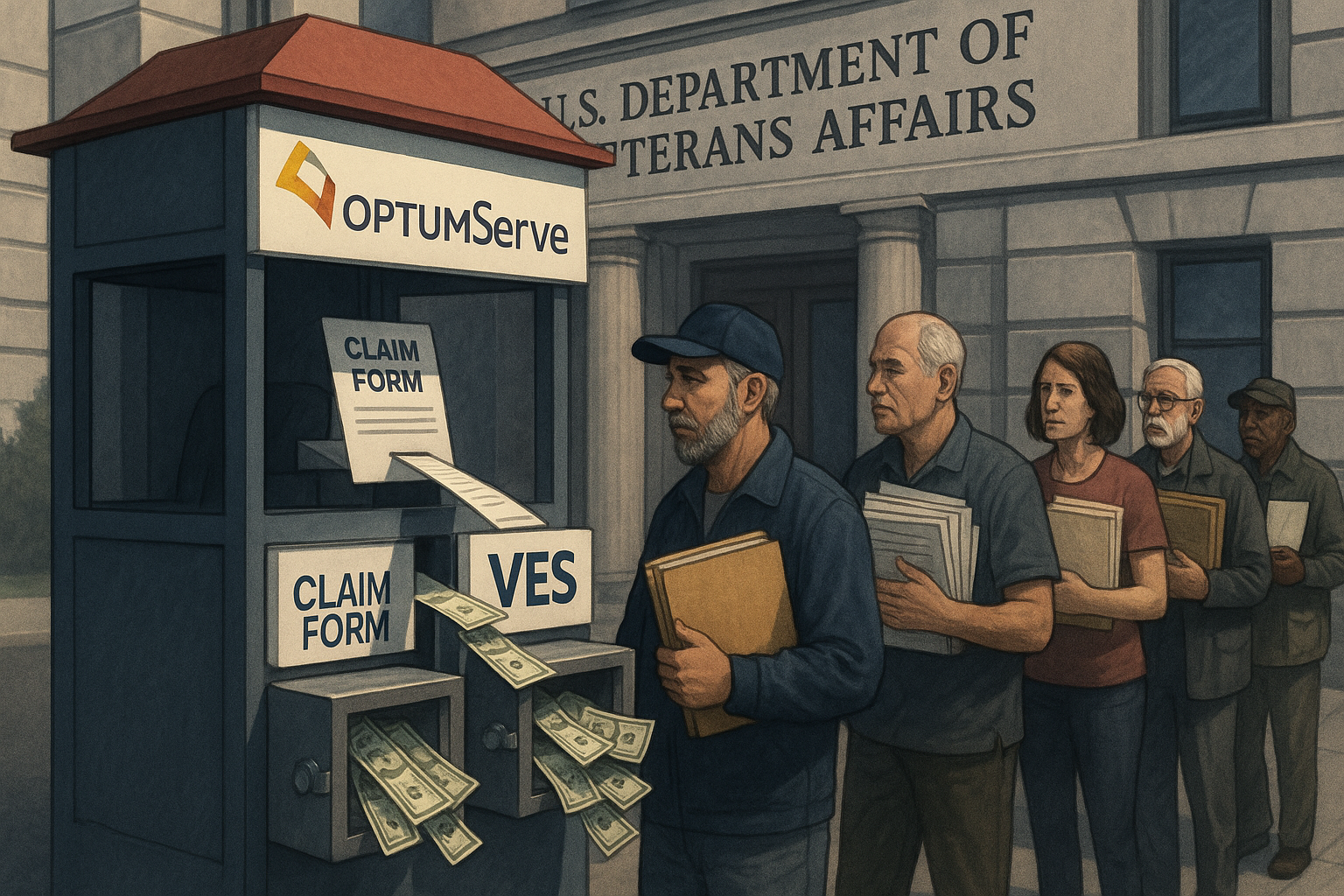When a disabled veteran starts talking about the money trail in federal contracts, my ears perk up. And when Warren Buffett silently moves in the same direction? Well, that's when things get downright fascinating.
I've been tracking government contracting patterns since 2015, and there's something brewing in the VA system that few are discussing openly.
It's about Project 2025 – you know, that controversial conservative blueprint for reshaping federal agencies that's gotten Democrats so worked up. Buried deep in its many provisions is something that hasn't made headlines: a push to privatize Veterans Affairs claims processing.
The key players aren't newcomers. They're already deeply embedded in the system: OptumServe and Veterans Evaluation Services (VES). These contractors have been handling disability examinations for years. And who owns them? UnitedHealth Group and Maximus, respectively.
Here's where it gets interesting.
Buffett – the Oracle of Omaha himself – recently upped his position in UnitedHealth. Not dramatically, but noticeably. Meanwhile, Maximus stock has been climbing since May, with another curious bump following those bipartisan border bill discussions.
Why? The market seems to be pricing in something most commentators haven't noticed.
Let's call a spade a spade. What we're looking at is what I've termed the "Government Recycling Model." It works like this:
Company gets paid to process government claims. Company has financial incentives to initially deny many claims. Veterans are forced into appeals. And – wouldn't you know it – the same company gets paid again to process those appeals.
It's a perpetual motion machine. For shareholders, anyway.
God knows I've seen this pattern before. During the Medicare Advantage expansion (a story I covered extensively in 2018), similar contractors positioned themselves as gatekeepers, becoming, essentially, toll collectors on rivers of federal funding.
The playbook is painfully familiar. Political rhetoric focuses on "streamlining" and "modernization" while the financial reality centers on creating predictable revenue streams backed by Uncle Sam's checkbook.
What makes this worth your attention isn't just the policy implications. It's the Buffett signal.
While financial media obsesses over his Apple position or bank holdings, Buffett occasionally makes these quieter moves into companies positioned to benefit from regulatory shifts. His increased UNH stake suggests he sees something developing here that others don't.
For investors considering this play, the options market offers intriguing possibilities. LEAPS on Maximus could provide leveraged exposure to what might become a multi-year contracting cycle. The pricing doesn't seem to fully reflect potential upside if Project 2025's vision materializes.
Look, there are obvious risks. Privatization initiatives face resistance, and veterans' groups wield serious political clout when mobilized. There's also execution risk – anyone who's followed government contracting knows it rarely proceeds as smoothly as PowerPoint presentations suggest.
But the fundamentals remain compelling. Companies at the intersection of government spending and process management have historically delivered outsized returns. When those companies catch Buffett's eye... well, that's worth a second look.
Having watched similar privatization efforts unfold in Medicare, prison systems, and defense contracting, I can't help but notice the patterns. The most profitable government contracting plays are rarely the ones making headlines.
Sometimes, following the smart money leads to the most interesting stories. And the smartest money around may be quietly betting on who'll be processing veterans' disability claims in the years ahead.
